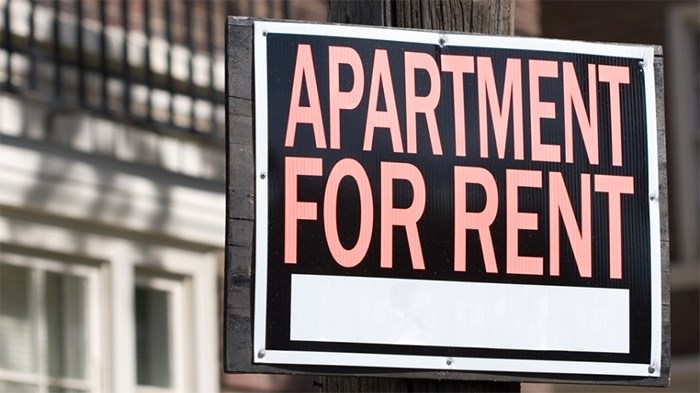 Shutterstock
Shutterstock
Some landlords in British are asking prospective tenants for too much personal information including credit card details, three months worth of bank statements and inquiring whether applicants were born in Canada, says the Office of the Information and Privacy Commissioner.
Acting commissioner Drew McArthur said 1.5 million people live in rental housing, representing about 30 per cent of all households in B.C., but the vacancy rate is so low across much of the province that landlords are taking advantage of the power imbalance.
"Housing is big business in B.C.: In one estimate, residential tenancy generates a greater direct impact on GDP than the mining or forestry industries," McArthur said in a report released Thursday.
Nationally, the urban centres with the lowest vacancy rates are all in British Columbia, with the province's overall vacancy rate at 1.3 per cent, he said, adding Vancouver's rate is 0.9 per cent. The lowest rate is in Abbotsford-Mission and Kelowna at 0.2 per cent.
McArthur said his office is investigating whether a new service complies with the Personal Information Protection Act in its collection of information about tenants from sources including social media platforms, which landlords are not authorized to search.
"In addition, I understand that some of these organizations require prospective tenants to complete behavioural questionnaires to evaluate their character," McArthur said.
The Human Rights Code also prevents landlords from asking for information about race, religion and family status, McArthur said.
"You also cannot inspect an applicant's current residence or ask if an applicant may become pregnant in the next 12 months," he said.
Landlords are authorized to collect a reasonable amount of information, such as references, recent pay stubs, a letter from an employer or permission to call an employer about income, as well as age for rental properties restricted to people over 55.
McArthur said his office receives calls daily from anonymous tenants worried about the over-collection of their personal information though many don't file complaints because they fear being blacklisted.
In one case, a caller said a landlord asked for copies of their child's report cards, he said.
"During this investigation, I heard from tenants seeking luxury accommodation as well as basic housing. I heard from young people and from retirees, in urban and rural areas."
One caller reported a landlord insisted on seeing his T4 slips, even though he had already verified his income by providing a letter from his employer, and another person said a landlord demanded consent to a credit check after an offer to pay one year's rent in advance.
"A landlord is only authorized to request consent for a credit check where a tenant is not able to provide satisfactory references, or employment and income verification," the report says. "While it is reasonable to collect a prospective tenant's credit history in these circumstances, it will not be necessary for most tenants, and a landlord cannot require every applicant to consent to a credit check."
The report is based on a review of 13 tenancy applications, eight involving for-profit landlords and five that pertain to non-profit organizations. It found 10 of 13 landlords collect information, that, if used, would contravene the Human Rights Code as well as the Personal Information Protection Act.
Information requested included birth date, driver's licence number, social insurance number, federal tax assessments, whether the applicant speaks English and the name of their bank and how long they'd been a customer there.
The report makes 13 recommendations, including that landlords must state clear, specific purposes for collecting personal information.
— By Camille Bains in Vancouver, follow @CamilleBains1 on Twitter.
![]()


